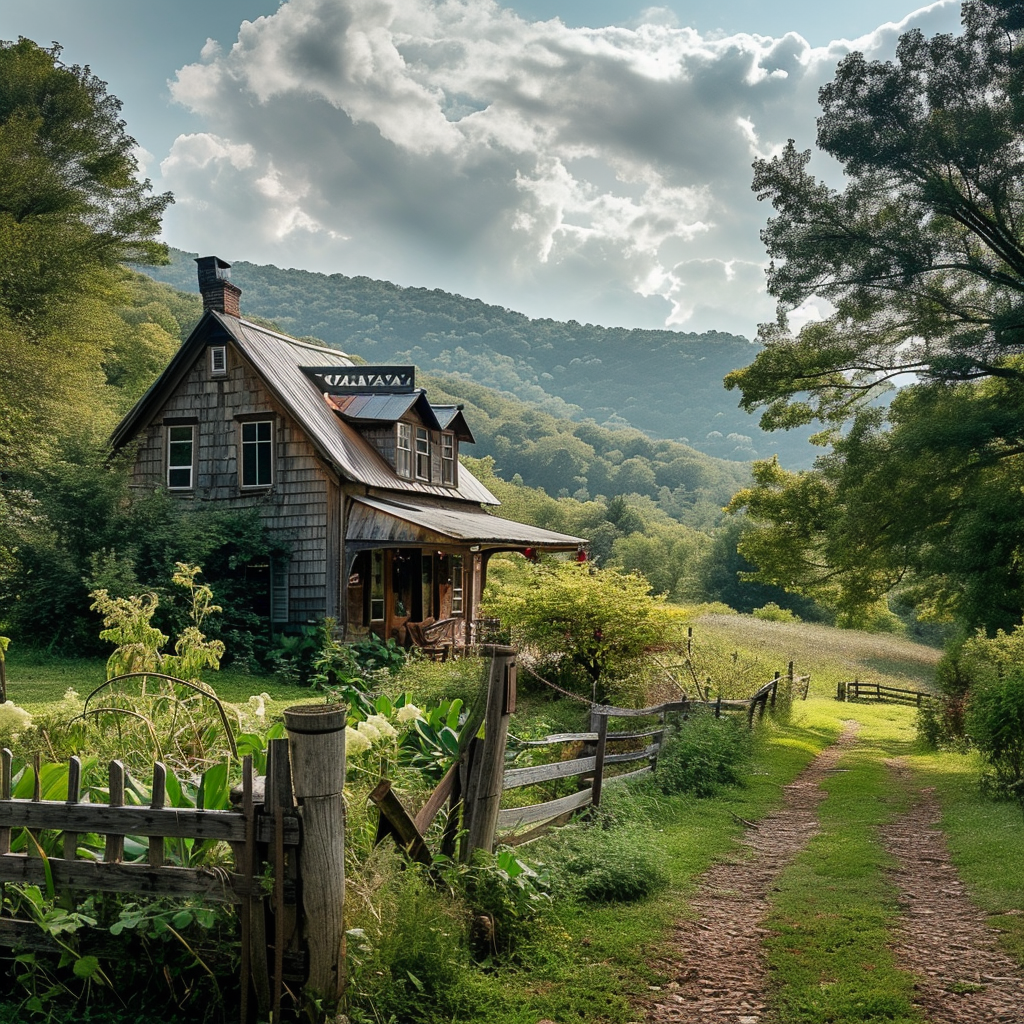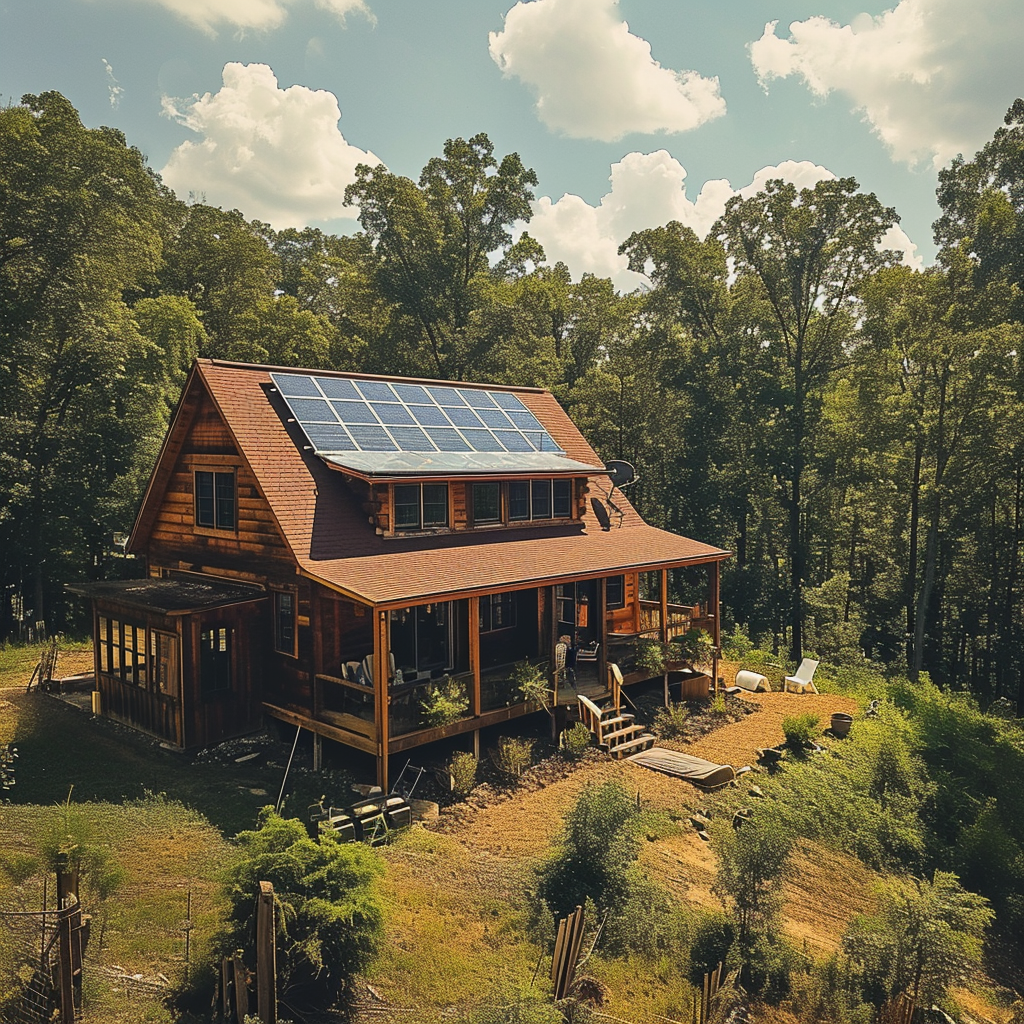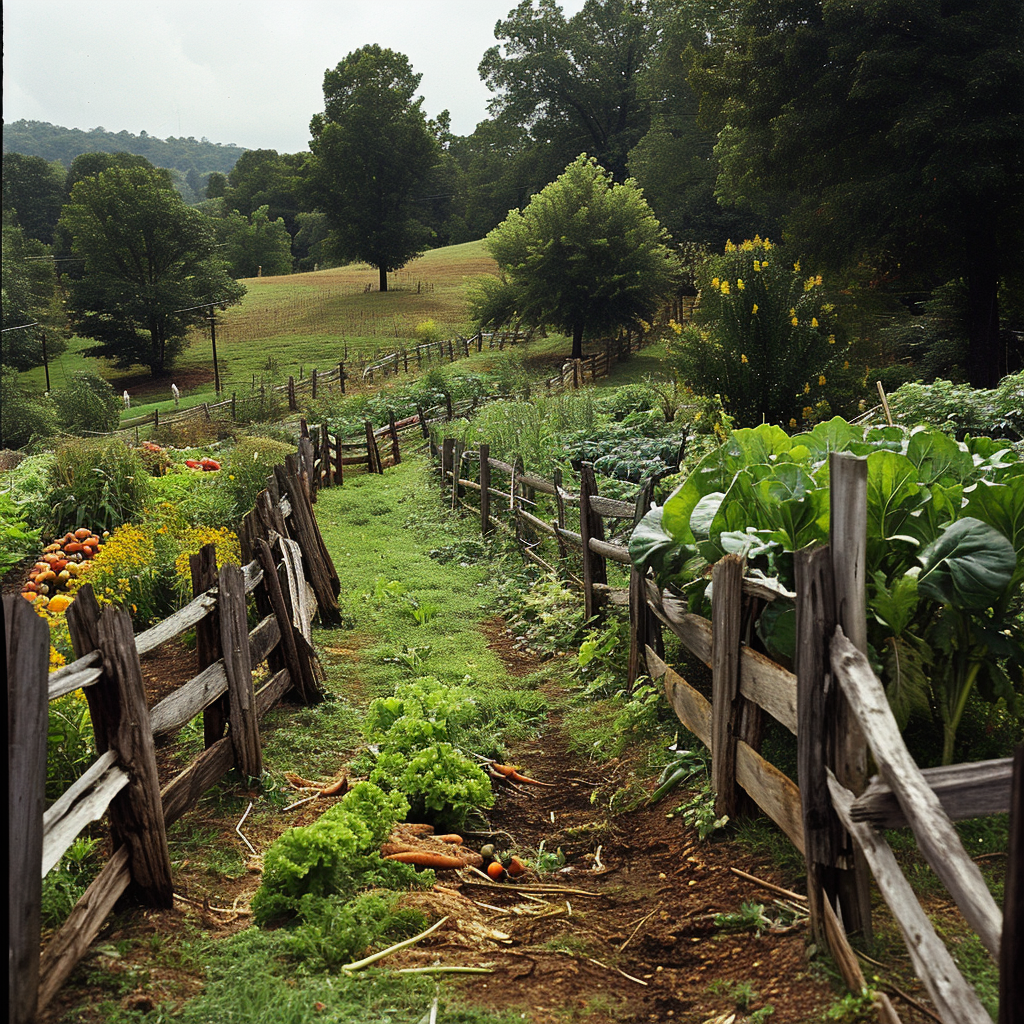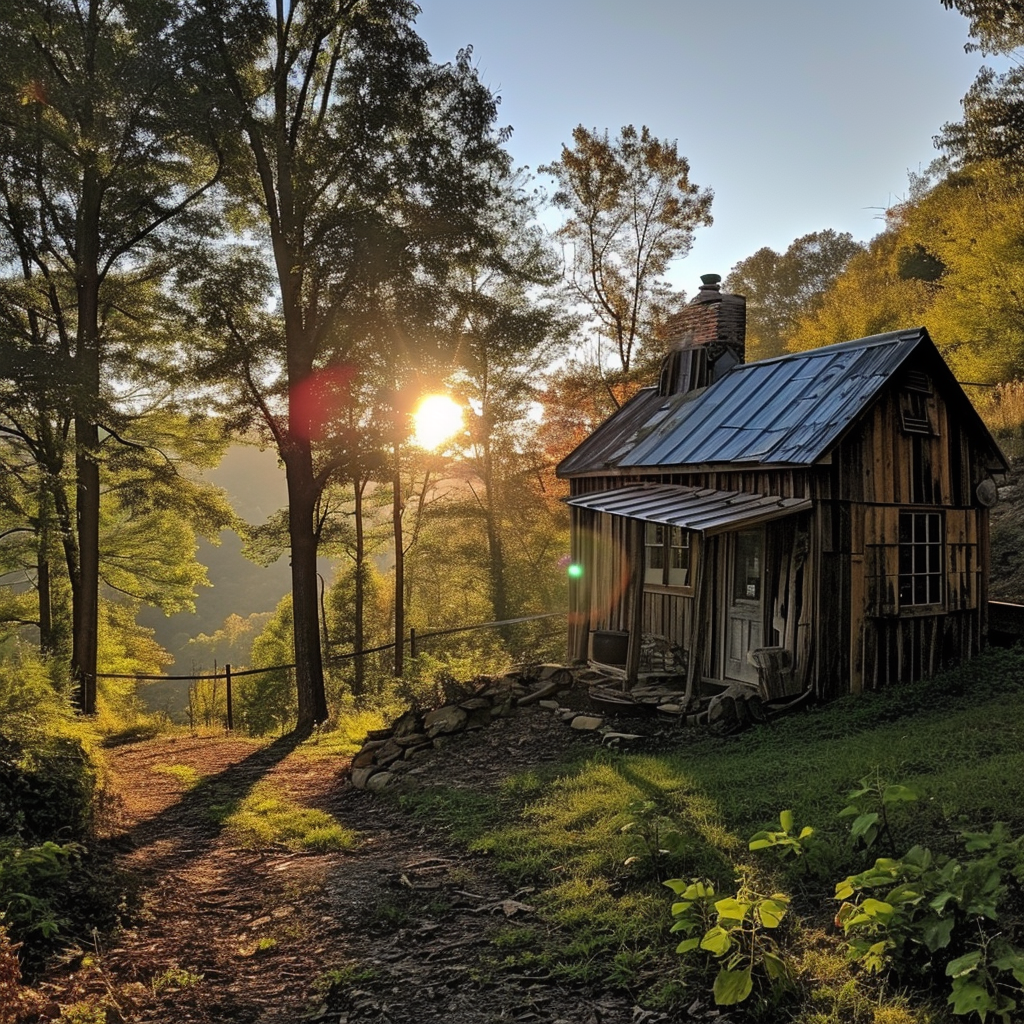Introduction
Have you ever wondered Can you live off-grid in Virginia? Well we might have the answer your looking for. Living off-grid in Virginia is a trend for those seeking self-sufficiency and sustainability. The state offers diverse landscapes, natural resources and supportive off-grid communities. From remote cabins in the Blue Ridge Mountains to eco-friendly homes by the coast, there are many options for off-grid living.
Residents can generate their own electricity, collect rainwater and grow their own food. Plus, off-grid enthusiasts come together to share knowledge, resources and experiences. This creates a supportive community of like-minded people.
Before embarking on an off-grid lifestyle in Virginia, research local regulations and permits regarding alternative energy systems. Knowing these requirements will ensure a smooth transition to off-grid living.
Understanding Off-Grid Living
To understand off-grid living with its various advantages and challenges, delve into the sub-sections ‘What is Off-Grid Living?‘ and ‘Advantages and Challenges of Off-Grid Living. Discover the essentials of embracing a self-sufficient lifestyle disconnected from public utilities and the implications it has on your day-to-day experiences.
What is Off-Grid Living?
Off-grid living is a lifestyle that allows individuals or communities to be self-sufficient and not rely on public utilities. It involves using renewable energy sources and managing resources efficiently.
It provides a sense of freedom while minimizing the carbon footprint. Plus, it encourages sustainable practices such as rainwater harvesting, composting and organic farming.
Moreover, it promotes a simpler way of life and offers a sense of freedom. To make the most of it, investing in high-quality equipment and technology is essential.
So, why not live off-grid and enjoy romantic candlelit dinners?
Advantages and Challenges of Off-Grid Living
Living off-grid has its own unique benefits and drawbacks. The advantages include:
- Resource efficiency
- Environmental sustainability
- Freedom
- Connection with nature
- Cost savings
- Resilience
Challenges include:
- Limited access to amenities
- Initial investment
- Maintenance responsibility
- Weather dependency
- Water management
- Social isolation
Off-grid living offers individuals the chance to redefine their relationship with the environment and live a life in harmony with nature. Globally, 1.7 billion people live off-grid, showing its relevance and growing interest. In Virginia, living off-grid could help you avoid electricity bills and enjoy a new lifestyle!

Living Off-Grid in Virginia
To live off-grid in Virginia and navigate the challenges that come with it, you need to be aware of the state regulations and policies. Additionally, knowing the available off-grid resources in Virginia is crucial. Explore the regulations and resources to successfully embrace an off-grid lifestyle in Virginia.
State Regulations and Policies
Before you make the move to off-grid living in Virginia, it’s important to be aware of the regulations and policies in place. Building codes must be met for safety, permits and inspections must be obtained and passed, and zoning laws may restrict where you can establish an off-grid residence.
Additionally, renewable energy usage, such as solar panels or wind turbines, may require certain permits or agreements with power companies, while accessing clean water must comply with state guidelines and proper disposal of wastewater requires compliance with regulations on septic systems.
Be sure to consult with local authorities and experienced professionals for guidance tailored to your specific location and remember that failure to comply with these regulations could lead to penalties, fines, or even eviction from the property.
Embrace the freedom of off-grid living in Virginia while respecting the legal framework in place. Educate yourself on the requirements and take proactive steps today for a fulfilling off-grid experience!
Available Off-Grid Resources in Virginia
As a Virginia resident, you may be wondering what resources are available to support an off-grid lifestyle. Let’s explore the options!
Solar Power: Virginia’s sunny climate makes it a great place for generating solar power.
Wind Energy: Coastal and mountain regions provide favorable conditions for harnessing wind energy.
Water Sources: Rivers and lakes give ample opportunities for accessing freshwater.
Agriculture: An extensive agricultural sector means you can grow food locally and practice sustainable farming.
Community Support: Like-minded communities offer knowledge-sharing and camaraderie.
Plus, Virginia has a progressive mindset towards renewable energy initiatives. Solar and wind energy companies offer support systems for those living off-grid.
Don’t miss out on the chance to experience the freedom and sustainability that comes with off-grid living. Take action now and explore the possibilities that await you off the grid in Virginia!

Benefits of Living Off-Grid in Virginia
To fully understand the benefits of living off-grid in Virginia, let’s explore the advantages it offers. Sustainability and environmental benefits, as well as self-sufficiency and financial independence, will be discussed. Delve into the ways living off-grid in Virginia can lead to a greener lifestyle and greater autonomy.
Sustainability and Environmental Benefits
Living off-grid in Virginia can bring sustainable benefits! Here’s what’s great about it:
- Reducing your carbon footprint – rely on solar and wind power instead of electricity.
- Conserving natural resources – careful use of water and energy helps preserve them.
- Being self-sufficient – grow your own food, use renewable energy, and adopt sustainable practices.
- Protecting ecosystems – no large-scale development and infrastructure projects.
- Lower noise levels – escape the hustle and bustle of cities and enjoy nature’s sounds.
- Preserving biodiversity – minimize land disturbance and create habitats for animals.
Plus, you get to reconnect with nature and appreciate its beauty.
But before you take the plunge, make sure you know the local building codes and regulations to abide by.
Self-Sufficiency and Financial Independence
Living off-grid in Virginia has various perks, including self-sufficiency and financial freedom. Embracing this lifestyle results in a sense of independence and reduced reliance on external resources. Here are four advantages of this lifestyle:
- Lower Expenses: Minimizing expenses is possible by using renewable energy sources like solar panels or wind turbines, resulting in lower or no monthly utility bills.
- Reduced Environmental Impact: Relying on renewable energy sources and embracing sustainable practices, such as rainwater harvesting or composting, helps protect the environment.
- Increased Resilience: Self-sufficient lifestyles equip individuals with the ability to survive and thrive without depending on the grid, even during power outages.
- Enhanced Self-Sustainability: Developing skills and knowledge, such as growing food, raising livestock, and DIY techniques, decreases reliance on outside products and services.
Moreover, living off-grid in Virginia has plenty of unique features. Its mild climate offers extended growing seasons and natural resources that aid in sustaining an independent lifestyle. Also, Virginia has a community of like-minded individuals who share ideas, resources, and experiences.
Pro Tip: Before transitioning to an off-grid lifestyle in Virginia, it is important to research local regulations. These include building codes, land use permits, and water rights, which will make the transition smoother.
Considerations for Off-Grid Living in Virginia
To ensure successful off-grid living in Virginia, consider important factors like location and property selection, energy sources and technology, as well as water and waste management. Each sub-section offers valuable solutions for the specific challenges you may encounter when embracing an off-grid lifestyle in this region.
Location and Property Selection
Property Type:
- Rural – Limited Availability, Remote, Forested.
- Suburban – Moderate Availability, Accessible, Hilly.
- Urban – Scarce Availability, Close, Flat.
Research state regulations for off-grid properties. These include zoning laws, permits and restrictions on alternative energy sources.
Off-grid living dates back centuries. People used their own resources for survival. Now, due to technology and environmental awareness, it’s a popular sustainable lifestyle choice.
Forget power outages in Virginia! Who needs electricity when you have a wild imagination and a wicked sense of humor?
Energy Sources and Technology
For off-grid living in Virginia, renewable energy is key! Here are some sources and tech to consider:
- Solar Power: Harnessing the sun’s energy via panels is popular. It provides reliable electricity during the day, storing excess for nighttime use.
- Wind Power: Coastal areas offer ample wind resources, making turbines an attractive option.
- Hydroelectric Power: Rivers and streams can generate electricity with the force of flowing water.
- Biomass Power: Organic materials such as wood chips or agricultural waste can be converted into usable energy.
- Geothermal Energy: Tapping into underground temperatures, this tech offers long-term efficiency and cost savings.
- Microgrids: These independent grids manage multiple renewable energy sources and minimize dependence on utility grids.
When deciding which energy source to use, consider your location-specific resources, budget, maintenance needs, and preferences. For example, those in sunny areas might choose solar panels, and those by strong winds may opt for wind turbines.
And don’t forget – giving plants a golden shower isn’t eco-friendly!
Water and Waste Management
Living off-grid in Virginia requires careful water and waste management. Get your sources from wells, rainwater harvesting, and surface water. Store it in cisterns or tanks and treat it with filtration systems, UV sterilization, and chlorination. Dispose of it with composting toilets and greywater recycling. Minimize waste generation and recycle. Monitor water usage and implement water-saving techniques like low-flow fixtures, rainwater collection systems, and efficient irrigation methods. For the optimal performance and longevity of your water filtration systems and composting toilets, follow the manufacturer’s instructions. And if you need further inspiration, there are some success stories to show that off-grid living in Virginia is possible.

Case Studies: Successful Off-Grid Living Scenarios in Virginia
To understand successful off-grid living scenarios in Virginia, explore case studies showcasing real-life examples. Discover how individuals and communities have thrived in off-grid environments in Virginia. Uncover valuable lessons learned and gain practical tips for creating a thriving off-grid lifestyle. Examples of off-grid homes and communities will inspire your own journey, while insights into best practices will ensure your success.
Examples of Off-Grid Homes and Communities
Text: Live off the grid for a sustainable lifestyle! Here are some successful off-grid homes and communities in Virginia:
- A rural farmhouse powered by solar panels, heating, and cooling.
- A Blue Ridge Mountains community with rainwater harvesting and composting toilets.
- An eco-village near Charlottesville using wind turbines for electricity.
- A remote cabin with a hydroelectric generator powered by nearby streams.
- A Richmond neighborhood growing food through permaculture.
- A Shenandoah Valley retreat center with geothermal energy.
These examples show the versatility of off-grid living. Plus, they all emphasize collaboration – individuals joining together to share resources, knowledge, and support.
For successful off-grid living, try these tips:
- Invest in renewable energy sources, like solar or wind turbines.
- Harvest rainwater and install efficient fixtures for water conservation.
- Grow your own food through organic gardening or CSA programs.
Follow these steps to find self-sufficiency and help the environment. Off-grid living builds resilience and sustainability for individuals and communities.
Lessons Learned and Tips for a Successful Off-Grid Lifestyle
Living off-grid can be an incredibly rewarding lifestyle. Here are some tips to consider for success:
- Evaluate your energy needs. Assess how much electricity you need and design a renewable energy system that is efficient. Solar panels and wind turbines are great options.
- Water management. Use rainwater harvesting, greywater recycling, and efficient plumbing fixtures for water conservation and reduced external dependency.
- Food production. Invest in organic gardening techniques, permaculture principles, and livestock rearing to create a self-sufficient and diverse food production system.
- Building design. Use sustainable materials, proper insulation, passive solar design, and natural ventilation to construct energy-efficient and environmentally friendly structures.
- Community collaboration. Reach out to like-minded individuals in your community with similar off-grid aspirations. Collaborate on knowledge-sharing initiatives, resource pooling, and sustainable practices.
Besides these points, prioritize education and learning in your journey. Stay updated with the latest advancements in renewable energy technologies, sustainable farming methods, and eco-friendly building practices. Adapt your lifestyle to new information to refine your off-grid living experience.
Moreover, don’t forget to appreciate the beauty of living off-grid. Nature’s tranquility can bring immense joy while also showing you the true simplicity of life. As author Richard Lively said, “Off-grid living teaches us that true freedom lies in our ability to live independently while embracing our interconnectedness with the natural world.” Who needs neighbors when you can live off-grid in Virginia? The WiFi may be weak, but the sense of freedom is strong!
Conclusion
Living off-grid in Virginia is doable! The state has a variety of landscapes and loads of natural resources that allow for self-sufficient life. Solar power and sustainable agriculture are two of the ways Virginians have been living off the grid.
Open spaces in Virginia let people set up their own systems, like solar panels and wind turbines, which give a constant source of renewable energy. With the right equipment and planning, people can disconnect from the electric grid and still have a good life.
Virginia’s climate works well for off-grid living. The state has mild winters and hot summers, which makes it easier to use alternative heating and cooling techniques. The soil in many parts of Virginia can be used to grow food, so you don’t need to depend on traditional agriculture systems.
One cool thing about living off-grid in Virginia is the community that forms among like-minded people. Off-gridders come together to talk, help each other, and create sustainable communities living in harmony with nature.
GreenMatch.com reports that there are more eco-villages and intentional communities in Virginia that are dedicated to off-grid living. These communities teach self-reliance and sustainability, while helping people feel part of something.
Living off-grid in Virginia is possible. It’s a way to reduce your environmental impact, be independent, and live simply. The beauty of Virginia with its supportive communities make it perfect for those looking for an alternative lifestyle away from the grid.




